From 11-13 February 2019, the top ROTC Cadets from all 274 ROTC programs across the nation and the US Military Academy at West Point traveled to Ft. Leavenworth, Kansas to attend the George C. Marshall Leadership Seminar. Cadet Bryce Stanton from Eastern Washington University (EWU) represented the university’s Reserve Officer Training Corps (ROTC) “Fighting Eagles” Battalion at the seminar. Cadet Stanton is an MS-IV (senior) Cadet that was chosen to attend the seminar after ranking first on the ROTC battalion’s Order of Merit List (OML). The OML is based on the Cadet’s academic performance, physical fitness test score, leadership, and achievements in the ROTC program.
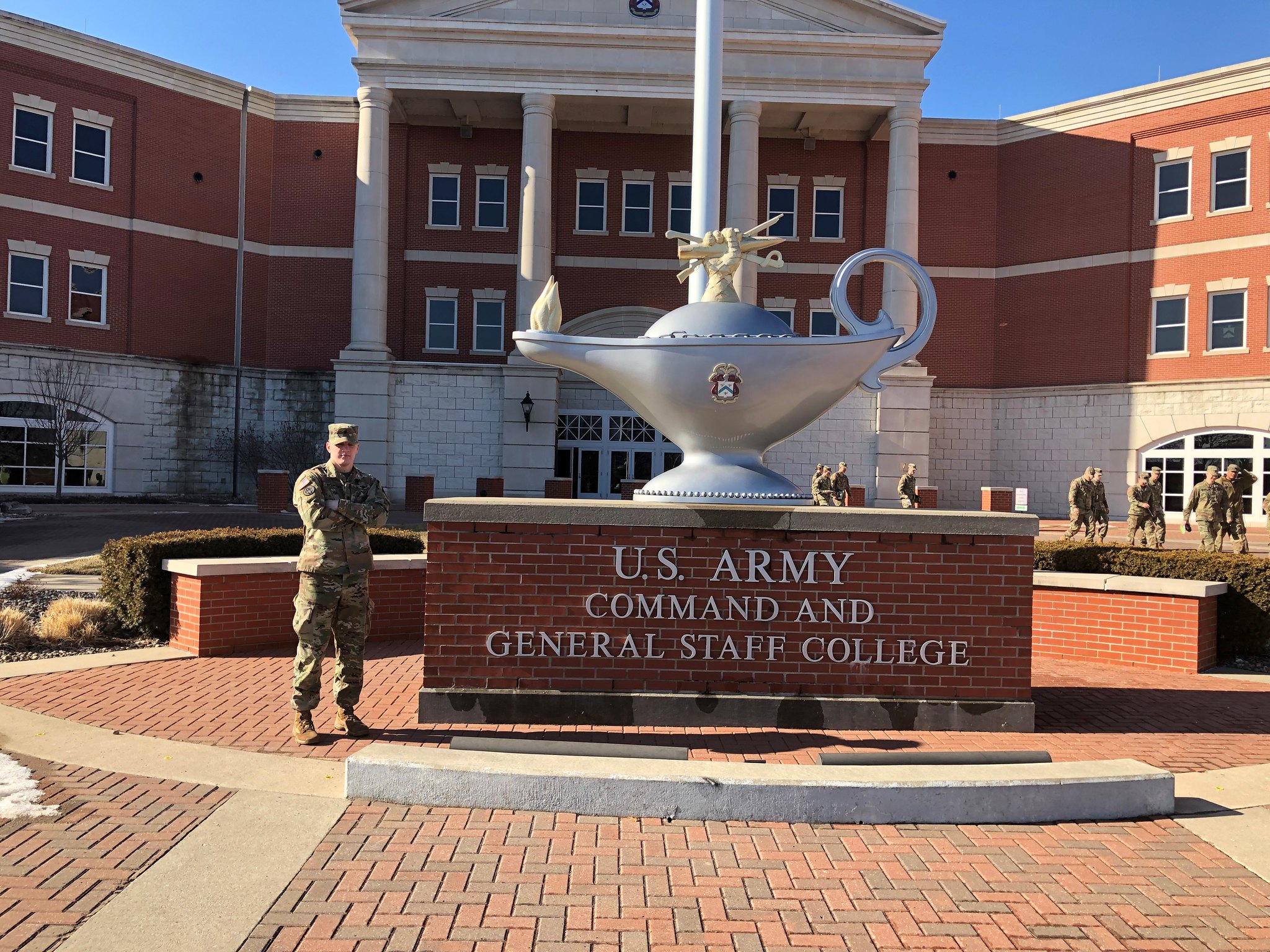
Cadet Bryce Stanton at the U.S. Army Command and General Staff College at Ft. Leavenworth, Kansas.
The George C. Marshall Leadership Seminar has been held annually since 1978. The seminar was originally held in Lexington, Virginia because Virginia Military Institute (VMI) was the alma mater of General George C. Marshall. Marshall as the Army Chief of Staff, grew the U.S. armed services from about 170,000 to more than eight million by the end of World War II. After the war, Gen. Marshall became the U.S. Secretary of State who formulated the famous “Marshall Plan” to reconstruct Western Europe.
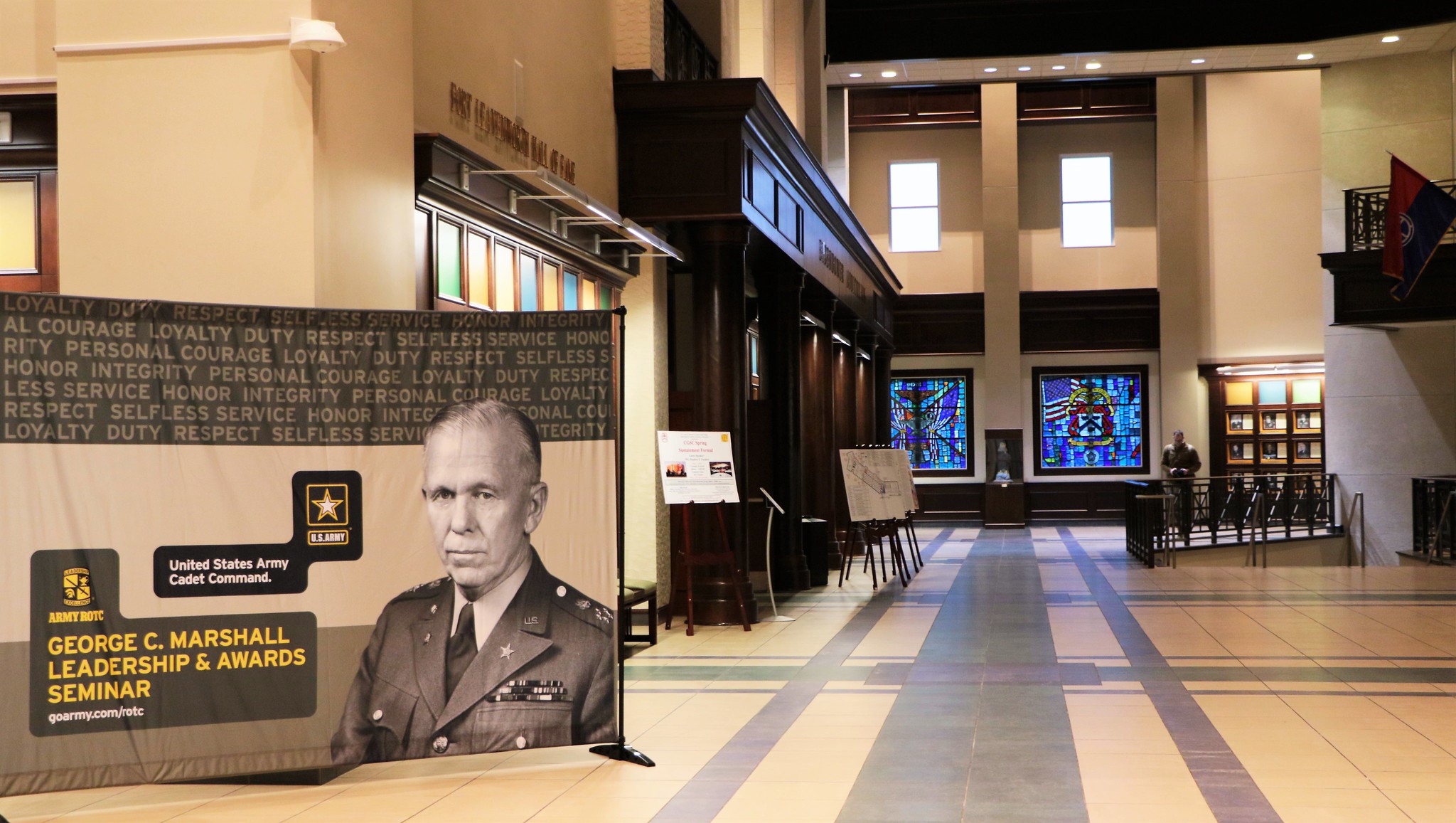 The George C. Marshall Leadership Seminar was held in the Eisenhower Auditorium at Fort Leavenworth, Kansas. (Cadet Command Photo)
The George C. Marshall Leadership Seminar was held in the Eisenhower Auditorium at Fort Leavenworth, Kansas. (Cadet Command Photo)
During the seminar Cadets attended briefs and took part in round-table discussions with Army and defense experts on critical military and geopolitical subjects. The seminar was truly a unique opportunity for the Cadets to interact with senior civilian and military leaders.
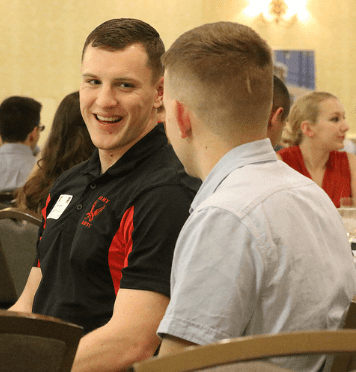 Cadet Bryce Stanton (left) at the icebreaker for the George C. Marshall Leadership Seminar. (Cadet Command Photo)
Cadet Bryce Stanton (left) at the icebreaker for the George C. Marshall Leadership Seminar. (Cadet Command Photo)
The opening remarks for the seminar were given by Major General John R. Evans, Jr. the commanding general of the U.S. Army Cadet Command. In his remarks Maj. Gen. Evans challenged the Cadets to “Find their Fox” in reference to Major General Fox Connor. Maj. Gen. Connor is considered one of the greatest mentors in U.S. military history.
 Major General Fox Connor
Major General Fox Connor
He is credited with mentoring many great future general officers to include General George C. Marshall. Here is what General Dwight D. Eisenhower had to say about Maj. Gen. Connor:
General Dwight D. Eisenhower served under, commanded, or worked closely with, GENs John J. Pershing, Douglas MacArthur, George C. Marshall, Omar N. Bradley, George S. Patton, Jr., and Walter Bedell Smith. However, when Eisenhower was asked who was the greatest American soldier he knew, he replied MG Fox Conner, adding, “In sheer ability and character, he was the outstanding soldier of my time.” [Army History.org]
I highly recommend listening to Maj. Gen. Evan’s opening remarks below and likewise encourage everyone to find their own Fox as well:
[youtube https://www.youtube.com/watch?v=1N9gVz6CY5E]
Finally during the seminar, the Cadets broke into small groups and were tasked with preparing briefings on various topics that were then presented to one of the eight ROTC brigade commanders. These briefings trained the Cadets to think critically on topics important to modern day military operations.
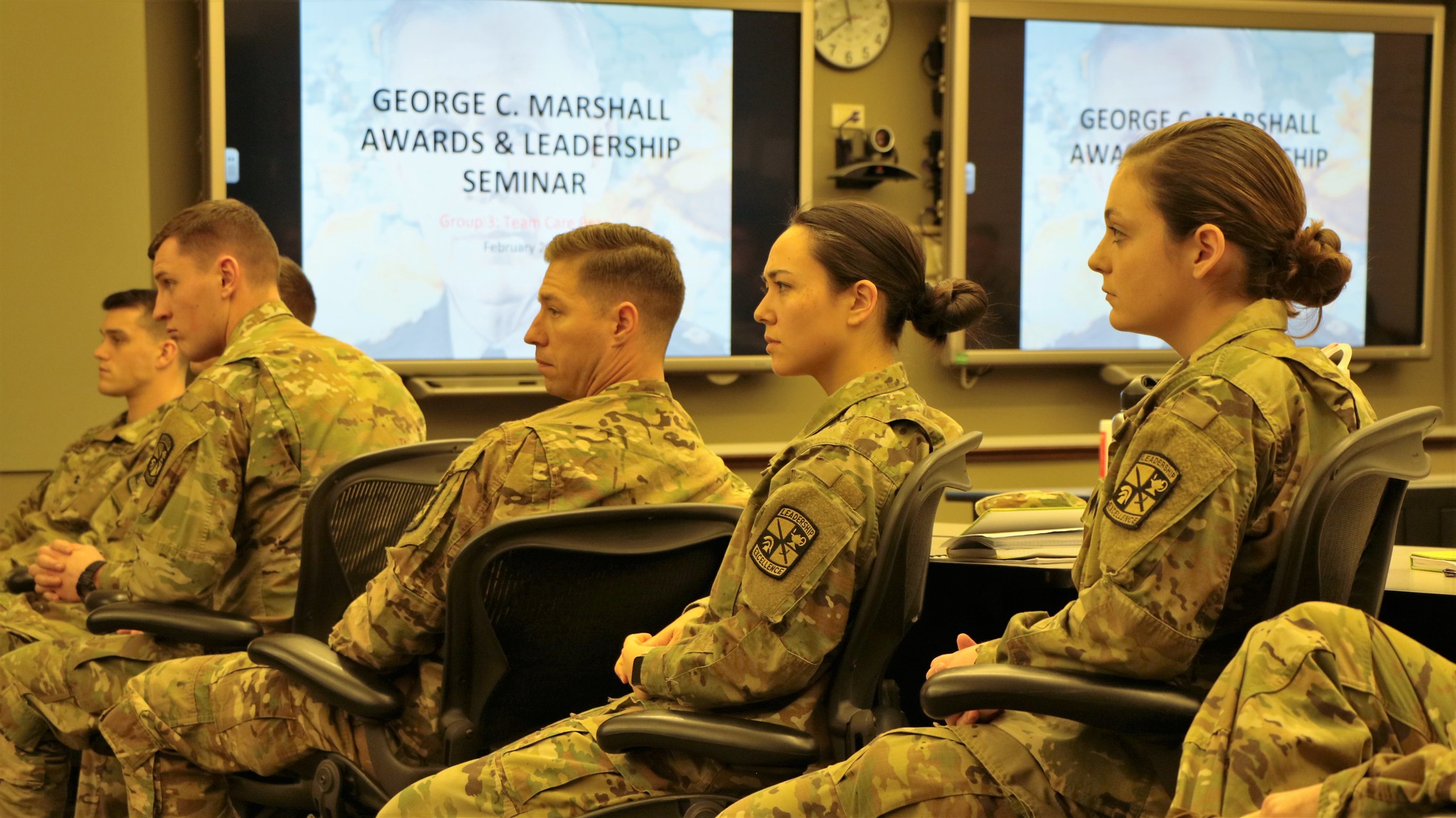 Cadet Bryce Stanton (far left) participates in small group activities at the George C. Marshall Leadership Seminar. (Cadet Command Photo)
Cadet Bryce Stanton (far left) participates in small group activities at the George C. Marshall Leadership Seminar. (Cadet Command Photo)
Congratulations to Cadet Stanton for being selected to attend the George C. Marshall Leadership Seminar. It is a prestigious honor that only the top Cadets in the nation get to attend. Cadet Stanton’s academic achievements and his outstanding performance in ROTC have clearly demonstrated that he is one of the top Cadets in the nation that proudly represented EWU and the Fighting Eagles Battalion at the seminar.
Go ROTC! Go Fighting Eags!
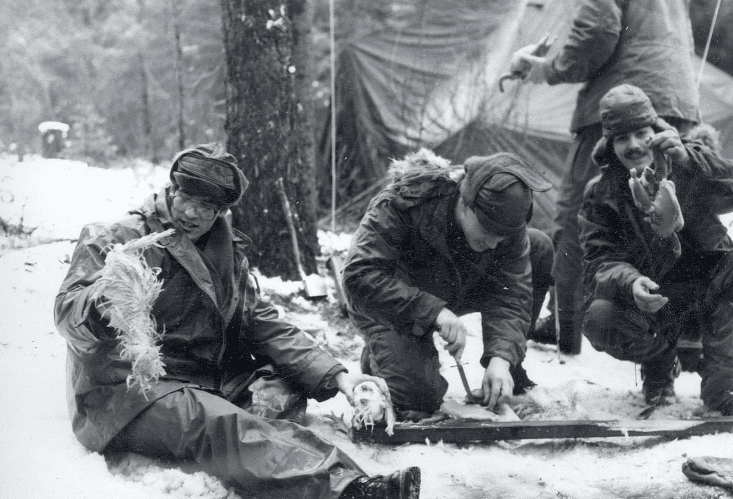


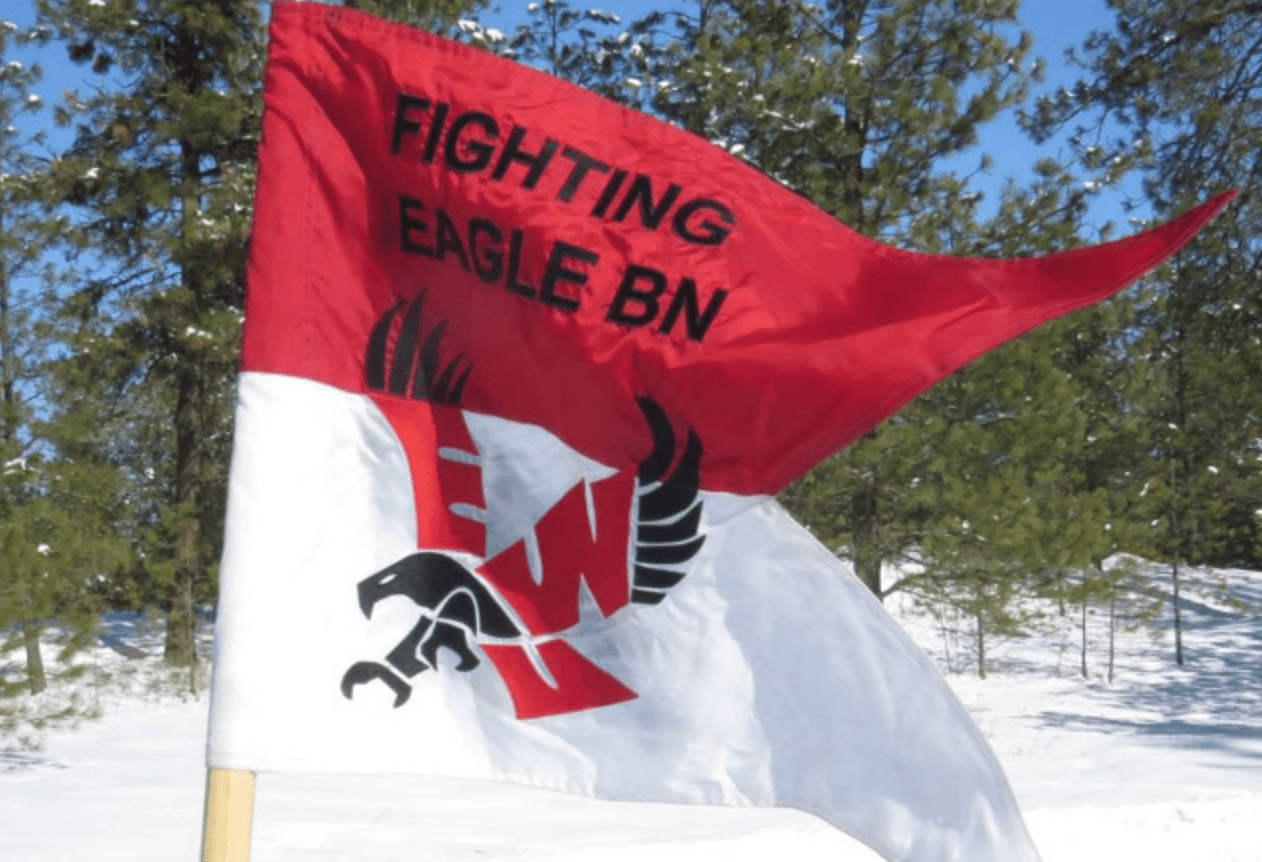

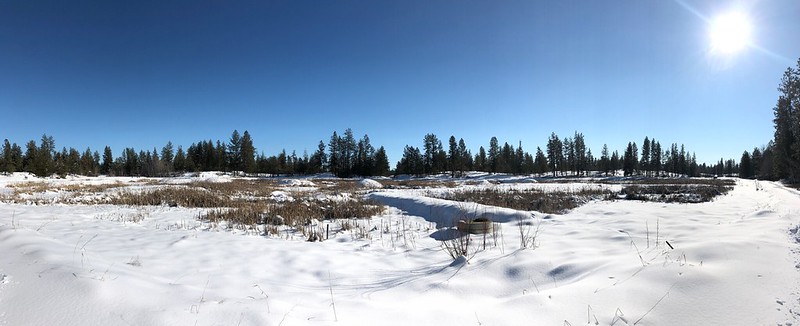 Heavy snow covers an open area at the Cheney Water Works.
Heavy snow covers an open area at the Cheney Water Works. 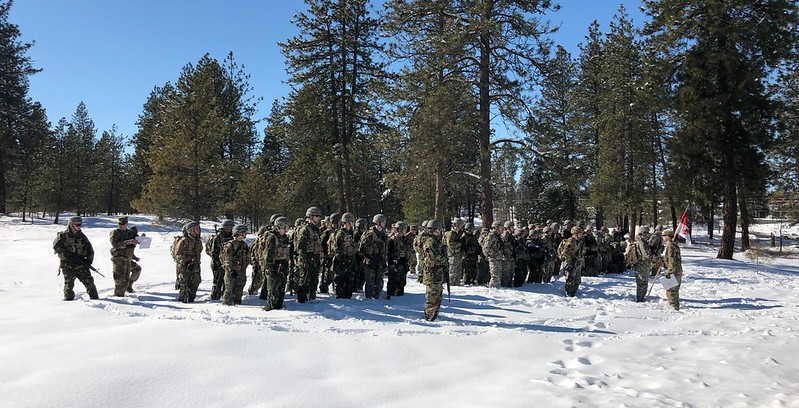 Cadet Erling Anderson (far right) briefs the Fighting Eagles Cadets prior to executing the weekly leadership lab.
Cadet Erling Anderson (far right) briefs the Fighting Eagles Cadets prior to executing the weekly leadership lab.  EWU ROTC Fighting Eagles Cadets position themselves for a squad ambush.
EWU ROTC Fighting Eagles Cadets position themselves for a squad ambush. EWU Cadets position themselves to conduct a squad ambush.
EWU Cadets position themselves to conduct a squad ambush.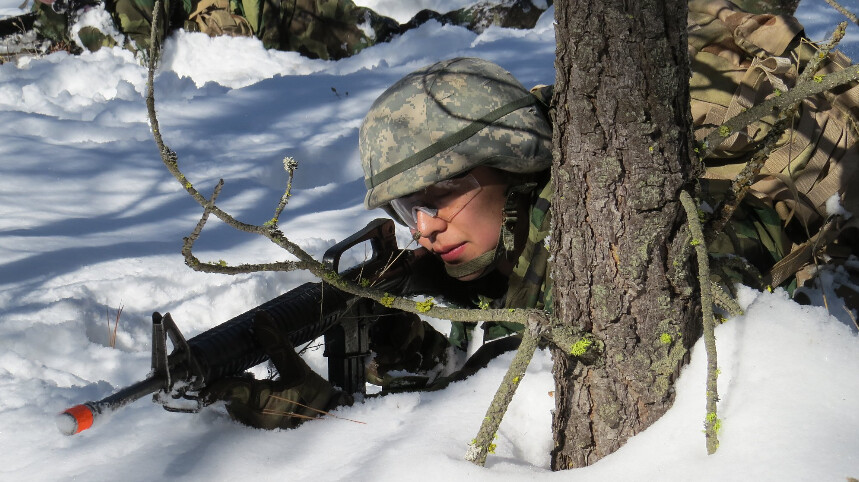 EWU ROTC Cadet prepares to engage the enemy during squad ambush training.
EWU ROTC Cadet prepares to engage the enemy during squad ambush training.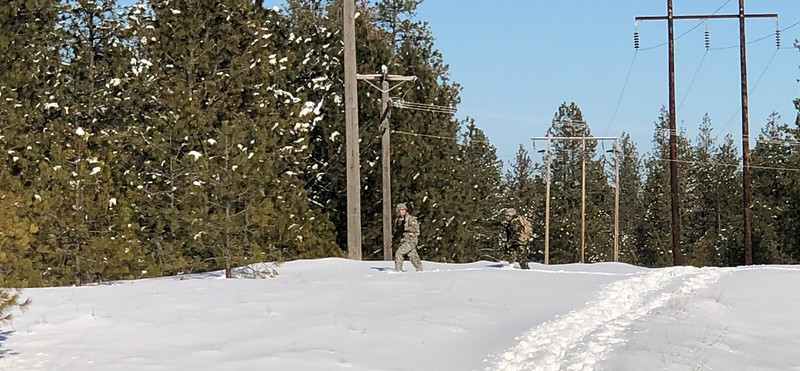 EWU ROTC Cadets cross an open area while conducting a reconnaissance mission.
EWU ROTC Cadets cross an open area while conducting a reconnaissance mission.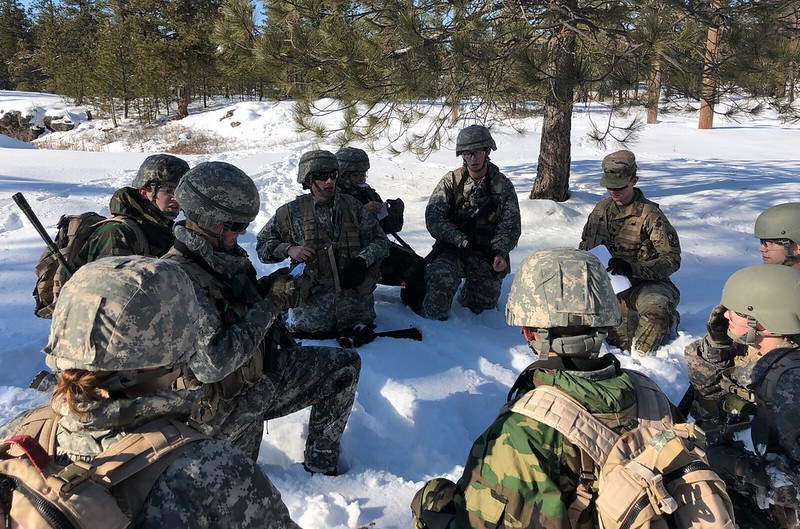 Cadet Nicholas Null (center) briefs his squad after returning from reconnaissance mission.
Cadet Nicholas Null (center) briefs his squad after returning from reconnaissance mission.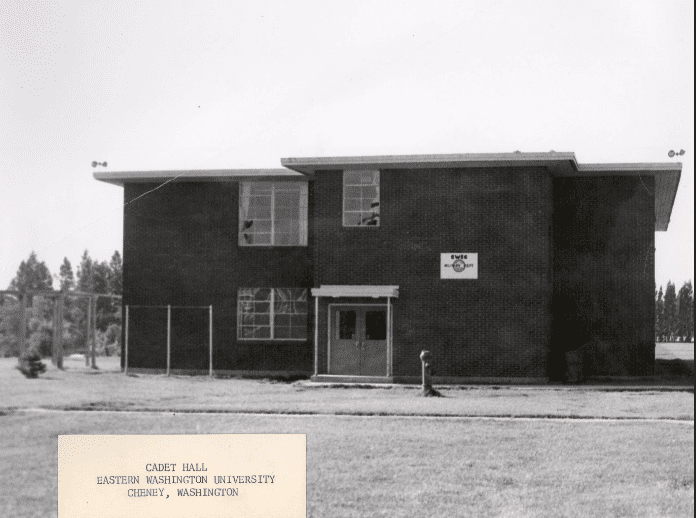
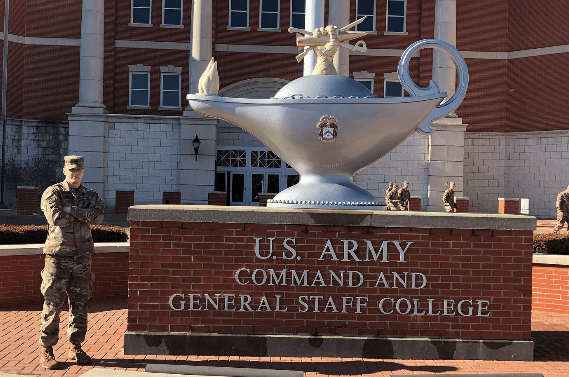

 The George C. Marshall Leadership Seminar was held in the Eisenhower Auditorium at Fort Leavenworth, Kansas. (Cadet Command Photo)
The George C. Marshall Leadership Seminar was held in the Eisenhower Auditorium at Fort Leavenworth, Kansas. (Cadet Command Photo) 
 Major General Fox Connor
Major General Fox Connor Cadet Bryce Stanton (far left) participates in small group activities at the George C. Marshall Leadership Seminar. (Cadet Command Photo)
Cadet Bryce Stanton (far left) participates in small group activities at the George C. Marshall Leadership Seminar. (Cadet Command Photo)
